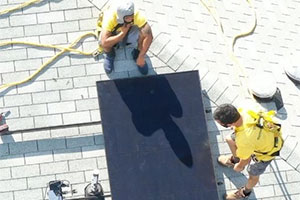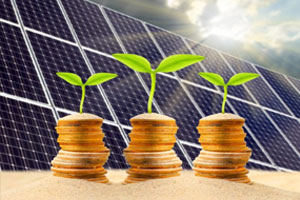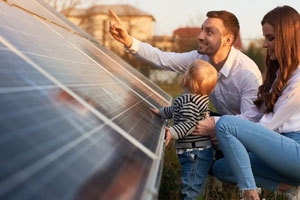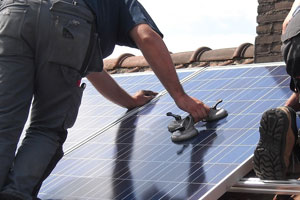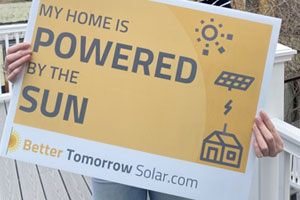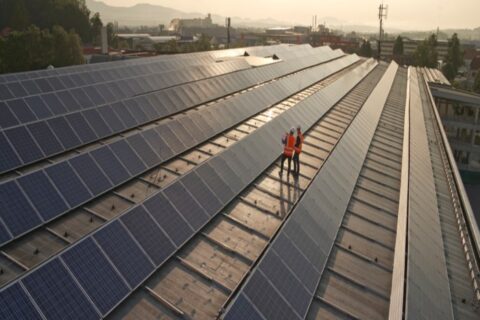How to Know If Solar Is Right for You
Is Your Home Right for Solar?
Determining if your home is suitable for a solar installation is the first step in moving to more affordable and sustainable energy. If your roof gets significant sun exposure throughout the day and has minimal shading from nearby trees or buildings, you are already on the right track. In regions like Atlanta, GA, there is a high solar potential due to the ample sunlight received throughout the year.

What Factors Do We Look at to Determine a Home’s Solar Potential?
Deciding whether a home solar system is viable involves several critical factors:
- Roof Condition – Older or damaged roofs may require repairs or even complete replacement before you can install a solar system for your home. This can add to your initial costs.
- Roof Space – A solar energy installation requires sufficient roof space for the solar panels. Smaller roofs may limit the size of the system you can install, which could affect the energy output.
- Ground Space – In some situations, solar panels can be installed on the ground around your home. This offers the added benefit of being able to set the position of the panels to maximize sunlight exposure.
- Sun Exposure – Professionals can conduct a solar site assessment, which provides a detailed analysis of how much sunlight your property gets. This determines the efficiency you can expect from your solar power systems.
- Local Climate – Some climates make solar power systems more practical. If your home is in an area that has plenty of sunny days, it’s likely to be a good candidate for a solar installation.
How Solar-Friendly is Your Electric Utility?
It’s important to research the solar programs provided by your local electric utility. In some areas, local power companies encourage the installation of solar panels by offering rebates or incentives to their customers. In addition, most electric utilities purchase any excess electrical power generated by your home solar system. You can usually obtain this information by reviewing your electric provider’s website or by consulting a local solar panel company such as Better Tomorrow Solar.
Types of Solar Interconnection
Understanding the types of solar interconnections can help you optimize the financial benefits of your home’s solar power system. The most common systems are as follows:
- Net Metering – This is the most popular type of solar interconnection. With net metering, the excess electricity that your solar system generates can be fed back into the grid, and you’ll receive credit against your electric bill.
- Sell-Excess – In this arrangement, you use the power your system generates and sell any surplus back to the grid. However, the rate at which you sell excess power may not be the same as the retail electric rates, which could affect your returns.
- Buy All–Sell All – In this program, every kilowatt-hour your solar system generates is sold to the grid. You then buy back what you need at the utility’s standard rates. Though this arrangement is less common, it can be profitable if the buying and selling rates are favorable.
Does Your Homeowners’ Association (HOA) Have Solar Restrictions?
Many HOAs have bylaws that can restrict or even prohibit certain types of solar installations. It’s absolutely necessary to consult your HOA’s guidelines to avoid any legal complications after installing your home solar system.
What are the Local Permitting and Inspections Department’s Solar Requirements?
Permitting can be a complex and sometimes lengthy process. Each local jurisdiction may have specific permitting requirements for installing solar energy systems. Typically, you’ll need to pass a series of inspections to ensure that your home solar power system is up to code. Make sure to consult local authorities to understand the specific requirements in your location.
Financial Considerations
While installing a solar system can be an expensive proposition upfront, it often results in significant long-term savings. To understand whether the investment is right for you, calculate the potential return on investment and payback period. Various tax incentives, grants, and financing options can make a solar power system more affordable and a no-brainer.
Your State/Location
Local and state incentive programs can make a significant difference in the viability of your solar investment. In some areas, there are specific state-level incentives. Such incentives are in addition to the federal government’s Investment Tax Credit (IUTC) program.
What’s the Next Step?
By now, you should have a good understanding of how to know if a solar installation is right for you. Solar is not just an eco-friendly option; it’s also a financially smart move that can offer long-term benefits. Don’t miss out on the chance to make a meaningful impact on both your wallet and the planet.
Reach Out to the Experts for More Information
To learn more about the viability of a solar installation for your home or business, contact us here at Better Tomorrow Solar for a consultation. We’re passionate about the power of solar energy in improving the lives of our customers and our communities This is why we’re committed to making solar solutions both attainable and affordable. We offer competitively priced solar panels and solar battery storage installation for both residential and commercial clients.
We’re convinced of the many benefits of solar energy, from being a sustainable energy source to substantially lowering your utility bills and enhancing your home or business’s energy efficiency, and reducing your carbon footprint. With this belief in our mission, we aim to expand solar accessibility across communities in Atlanta, GA. To help realize this vision, we provide specialized services and innovative financing options designed to break down barriers to solar installations.
For more information about our products or services, or to schedule an initial consultation, visit our website, or contact us today in Georgia at 678-712-2706. We look forward to serving you!
